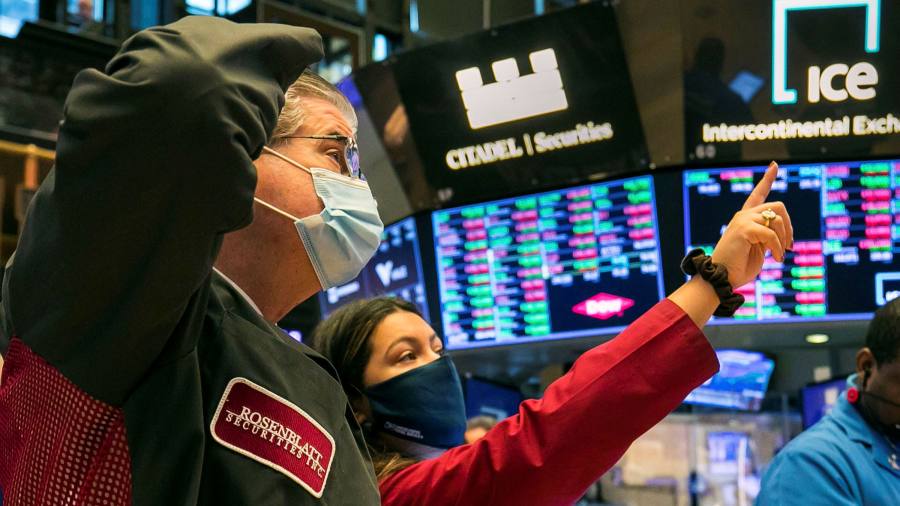Global stocks were on track for their best month on record on Friday, propelled by a series of Covid-19 vaccine breakthroughs and optimism over Joe Biden’s victory in the US presidential election.
MSCI’s index of developed and emerging markets has risen 13.3 per cent so far in November, with a gain of 0.5 per cent on Friday lifting the benchmark to an all-time record.
At the start of a truncated session on Wall Street, in which US markets are open just half a day, the tech-heavy Nasdaq Composite rose 0.9 per cent to a fresh intraday high.
The rally reflects investors’ growing eagerness to buy into risky assets, encouraged by progress in the development of Covid-19 vaccines at Pfizer-BioNTech, Moderna and AstraZeneca.
“It’s incredible, absolutely stunning,” said Fahad Kamal, chief market strategist at Kleinwort Hambros. The month’s gains are “all linked back to one crucial factor and that’s the vaccine”.
Trials showing that the three vaccines were highly effective in preventing Covid-19 have raised hopes that the coronavirus crisis will be brought to an end next year.
The hunger for stocks has been reflected in investment flows, with $89bn flooding into equity funds over three weeks in November, a record haul, according to analysts at Bank of America.
“The US election coupled with the vaccine [news] has removed two quite significant tail risks from the market,” said Maya Bhandari, fund manager at Columbia Threadneedle Investments. “There does still appear to be room to add further [to the gains].”

The Stoxx Europe 600 share index was up 0.4 per cent in afternoon trading in London, keeping the region-wide benchmark on track for a record monthly gain of more than 14 per cent. Despite November’s advances, the Stoxx 600 is still 5 per cent lower than where it started the year, while London’s FTSE 100 remains down 16 per cent.
Paul Dales, chief UK economist at Capital Economics, said encouraging vaccine news meant that “by the middle of the decade the economy won’t be much smaller than if the Covid-19 crisis had never happened”.
Doubts have, however, been raised about AstraZeneca’s vaccine candidate, which had been hailed as cheaper and an easier jab to store than the alternatives, following a mix-up in the dosages given and muddled communication about the results.
AstraZeneca lost less than 1 per cent in early US trading while rival Moderna leapt 12 per cent.
Optimism has also been tempered to some extent by the surge in coronavirus cases in the US and tightening restrictions in Europe.
Investors were grappling “with the likely spread in the pandemic over the colder winter months ahead as well as potential disruption with AstraZeneca’s vaccine rollout”, said Jim Reid, a strategist at Deutsche Bank.
The uplift in market sentiment led to a modest sell-off in haven assets, taking the price of gold down 2 per cent to below $1,800 a troy ounce, its lowest level since July.
Brent crude, the international benchmark, rose 0.2 per cent to just below $48 a barrel. Oil prices have tracked stocks higher this month on hopes of a rebound in fuel demand once a vaccine is rolled out, taking the market back to levels not seen since the early stage of the pandemic.
In Asia-Pacific, China’s CSI 300 index climbed 1.2 per cent, following the release of upbeat economic data. Japan’s Topix closed up 0.5 per cent while Hong Kong’s Hang Seng gained 0.3 per cent.

